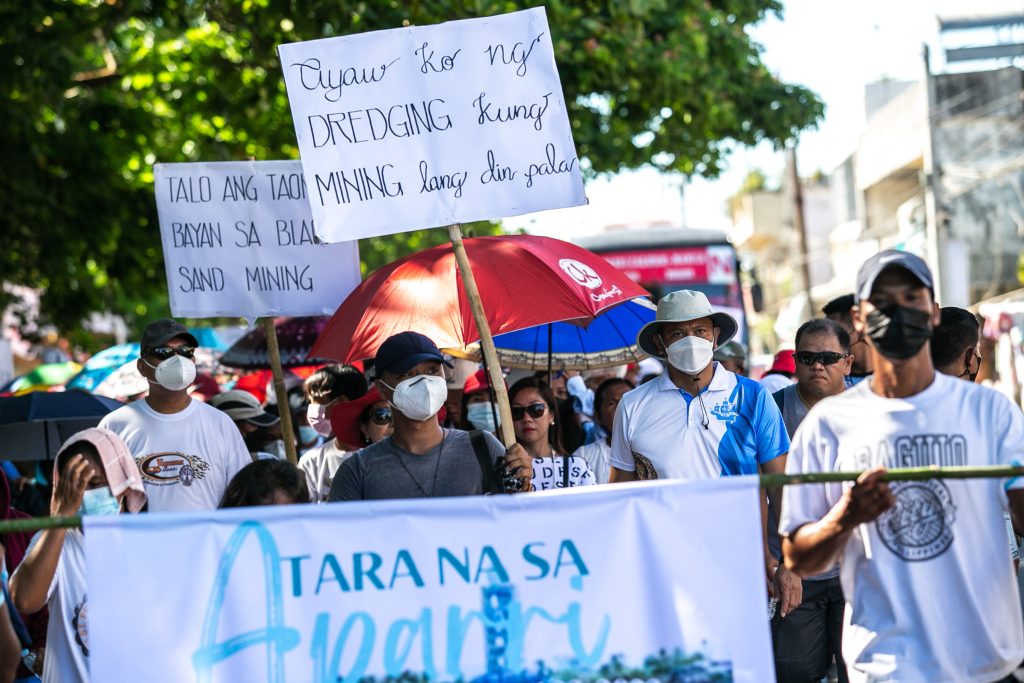Fisherfolk and anti-mining activists held a protest march in the northern Philippine town of Aparri in Cagayan province on April 22, Earth Day, to call attention to the impact of black sand mining operations on their livelihood and on marine biodiversity in the area.
The fisherfolk claimed that their catch of the famous “aramang” or spider shrimp has declined after the black sand mining mining operation, “in the guise of a river restoration project,” started in 2021.
They said that from December 2021 to April 2022, which was open season for “aramang,’ fishermen only earned between US$7 and US$20 each for three days’ work.
“That is far cry from our usual [US$70] to US$120 earning before the mining operation,” said Ricardo Umoso, president of the association of “aramang” catchers.
Umoso said the mining operations destroyed the spawning grounds of marine species and decimated the fish and shrimp population.
At least 1,700 people from 12 villages in Aparri town joined the march to mark this year’s Earth Day celebration that was followed by a prayer service at the San Pedro Telmo Parish Church.
Catholic priest Manuel Catral said the event was “intended to be a platform for the fisherfolk to express their depressing situation to the people of Aparri and its future leaders.”
“Fishing is the lifeblood of Aparri,” said the priest. “Its people’s identities are closely anchored in its waters,” he said.

Father Catral said the Church is “united with the fisherfolk in their clamor to stop the ecological plunder of the river and the seas and claim their economic, social, and cultural rights.”
He said the dwindling catch has considerably slashed the income of about 11,000 fisherfolk and their families.
“Before the dredging operations, one boat would catch up to 200 kilograms of fish overnight off the coast of Aparri. Now, they would be lucky to take home three kilograms of fish,” said Father Catral.
The large-scale dredging activity supposedly aims to rehabilitate the Cagayan River and pave the way for the reopening of the port in Aparri.
In a letter sent to former Environment Secretary Roy Cimatu on June 8, 2020, Cagayan Governor Manuel Mamba said the local government would “venture with [the] private sector” to undertake “desilting and dredging” of the Cagayan River “without cost from the local government.”
Aparri residents and fisherfolks, however, claimed that the large-scale dredging operation was “not just a river rehabilitation project but a black sand mining operation.”